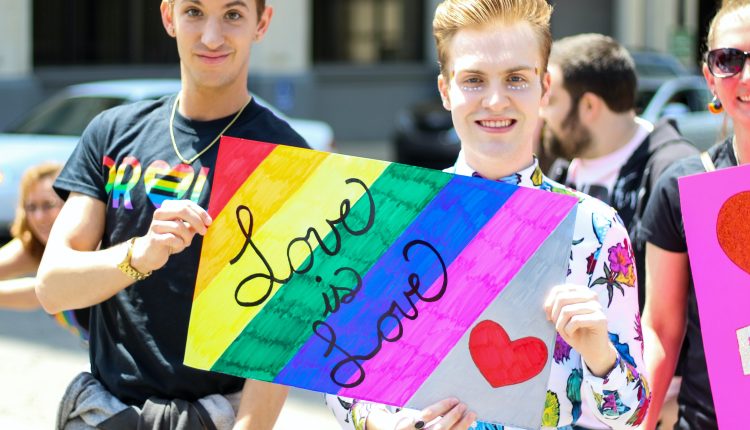Gay, bisexual youth can thrive with positive family relationships
The following content is wholly owned by Science Daily who reserve all rights in to the content, any Science Daily logos, trademarks or trade names contained in this article
Read the original on the Science Daily website
Gay and bisexual youth who are supported by their family and feel comfortable talking to them about their lifestyle are less likely to become involved in high-risk sexual behaviors, according to a recent Rutgers study.
Published in the Journal of Marital & Family Therapy, the Rutgers School of Social Work study, “Condoms and Connection: Parents, Gay and Lesbian Youth and HIV Risk,” found that positive family relationships and open dialogue led to an increase in safe sex practices, including the use of condoms, while disrupted family relationships resulted in risky sexual behaviors.
“Youth had limited engagement in unsafe sex when the families were able to have open, reciprocal discussions that were low in disagreement. Close family connections seemed to provide a context for safety,” says Michael LaSala, associate professor and a licensed clinical social worker.
Over a period of 18 months, LaSala and his research assistant, James Fedor, a doctoral candidate, and video recorded interviews with 38 gay and bisexual males between 14 and 21 years of age and at least one of their parents or caretakers living in New Jersey and the New York City, Washington, D.C., and Philadelphia metropolitan areas. Sons were asked about the nature of their family relationships, what they knew about HIV, whether they engaged in unsafe sexual behaviors, and whether parental relationships influenced their decisions to engage in safer sex. Parents were asked about their relationship with their children, their knowledge of HIV and to assess their own influence on their child’s risk behaviors.
Overall, reported parent-child closeness emerged as the most effective influence for youth in avoiding high-risk sexual behavior. Closeness was typified by acceptance of the child’s sexual orientation and open communication about a variety of factors including the importance of safe sex. For example, one mother reported, “He’s come home from school and told me different sexual things that are absolutely untrue, and my husband and I both set him straight. We tell him if there is anything that you hear at school and it doesn’t sound right to you, come and talk to us.” The youth who reported family influence on their decisions to engage in safe sex said discussions with parents, including warnings and urgings to use condoms, made a difference.
In families where youth reported no parental influence, half of the sons said they had engaged in unprotected intercourse in the past year. Almost all of these families experienced some kind of parental-child relationship disruption, either due to a parent’s death, drug abuse, health problems, or ongoing disapproval or rejection because of the child’s sexual orientation. One son, whose mother had died, reported that his father cut off ties with him when he came out as gay. He recalled, “My dad would say, ‘go right ahead. I don’t care what you do’.” Shortly after coming out, he had engaged in several incidents of unsafe sex. Several youth who had experienced similar rejections became HIV positive.
Christopher Famiglietti, a second-year MSW student who also has led SWAGGER (Social Workers Advocating for GLBT, Gender nonconforming/genderqueer Equal Rights) meetings and programming, assisted in transcribing the interviews for this research. He said the findings will help him to better assist gay and bisexual men in counseling.
“Some parents are afraid to touch on these issues. But we see in the research that an open relationship with parents creates a safe environment for a child who feels different from family members,” says Famiglietti.
LaSala said almost all parents in the study reported that they were not sure if they were doing a good enough job and wanted assistance in learning how to talk about this difficult subject. A frequently mentioned obstacle to HIV-related discussions was communication difficulties due to discomfort on the part of both the parent and the child. Further, almost all the families said they viewed the school system as an important place for the child to receive information, and that they wished that health classes would do a better job of educating gay and bisexual youth on the dangers of same-sex high-risk behaviors.
“We can’t discount the role of the family in protecting these young adults,” says LaSala. “One son said that it is his mom’s love that keeps him grounded. A family’s acceptance and open dialogue helps to encourage the young adult to take care of himself. So, for many families, the ties that bind could be a powerful motivator to stay safe.”
For families with a disrupted parent-child relationship, LaSala says that a family therapist or family-oriented social worker should be brought in to help families unite, assist parents in adjusting to the child’s sexual orientation and help parents and youth openly and productively discuss HIV risk and prevention.
. The original article was written by Beth Salamon. Note: Materials may be edited for content and length.


Comments are closed.